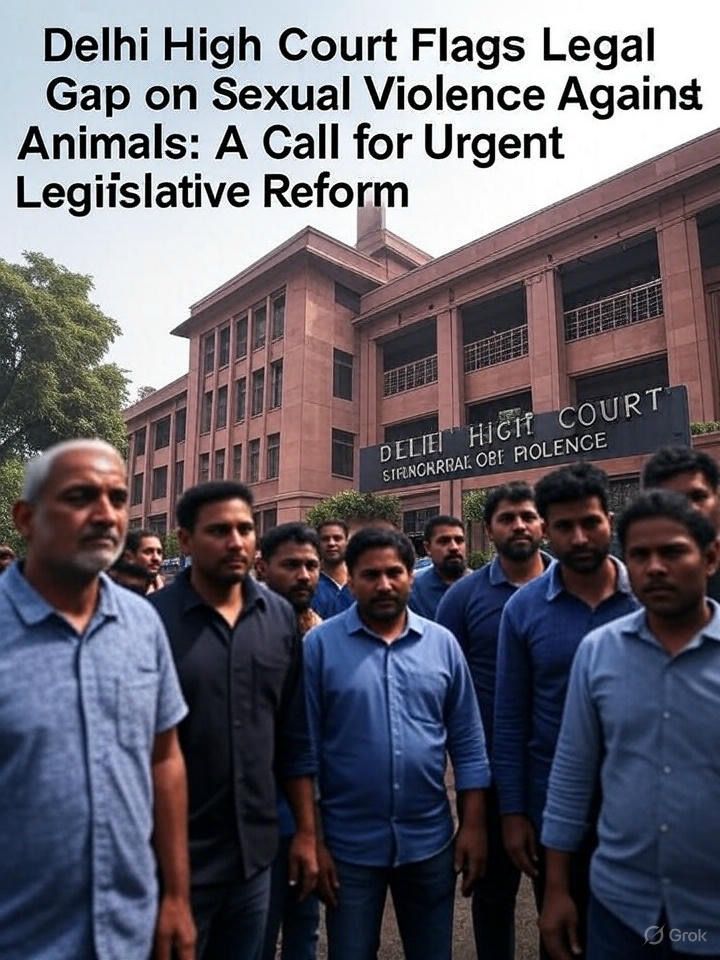Introduction
In a recent development that underscores a serious legislative loophole, the Delhi High Court has directed the Central Government to examine a public interest litigation (PIL) demanding specific laws to curb sexual violence against animals. The petition, filed by the Federation of Indian Animal Protection Organisations (FIAPO), argues that the repeal of Section 377 of the Indian Penal Code (IPC) has inadvertently left animals vulnerable, with no explicit protection against sexual abuse.
Section 377, until its removal with the enactment of the Bharatiya Nyaya Sanhita (BNS), 2023, was the only statutory provision under which individuals could be prosecuted for sexually abusing animals. While the section itself was controversial—historically criminalizing consensual homosexual relations—it also covered non-consensual and abusive acts against animals. Its deletion has now resulted in what FIAPO and other animal rights groups describe as a “legal vacuum.”
The petition cites nearly 50 reported cases of bestiality from across the country, including shocking incidents in Delhi and Coimbatore. Despite the graphic nature and brutality of such cases, perpetrators currently face limited legal consequences, largely because of the lack of a clearly defined statutory provision. This has prompted growing concern from advocacy groups like PETA India, who are calling for urgent amendments in the new criminal code to ensure that animals are not left defenceless.
Although the Delhi High Court has not taken a legislative stance, it has acknowledged the seriousness of the issue and forwarded the matter to the Central Government. This move is seen as a positive step toward igniting policy-level discussions and possible amendments. The government now faces the responsibility of ensuring that India’s legal framework continues to uphold animal rights and welfare in the evolving legal landscape.
Conclusion:
The Delhi High Court directions mark an important moment in the struggle for strong animal protection laws in India. As the country moves towards modernizing its legal code, it is important that animals are not ignored in this process. To ensure legislative reforms, this immediate interval should be addressed that cruelty in any form, including sexual abuse of animals, combines with strict punishment. The central government now has a moral and legal duty to implement laws that maintain the dignity of all living beings – human and animals equally.

